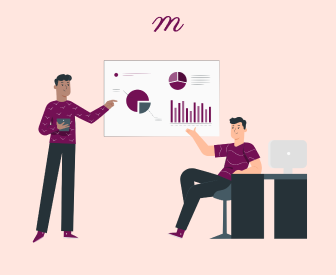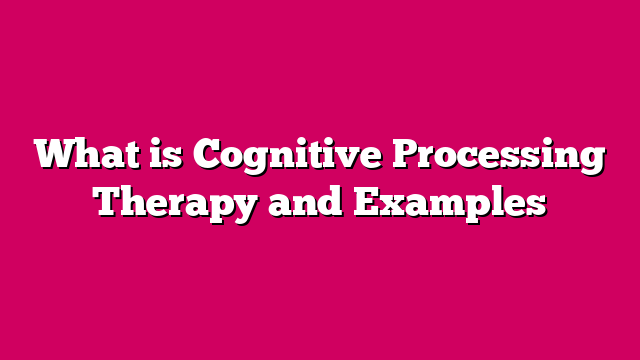Have your progress notes written for you automatically
Have you ever been curious about the secrets behind those tricky multiple-choice questions in an assessment? Brace yourself as we take you on an exhilarating journey to the world of psychometric assessments! Psychologists have ingeniously crafted psychometric assessments to measure various traits, abilities, and preferences. By quantifying attributes that are not visible to the naked eye, such as personality, intelligence, or aptitude, these psychometric assessments provide valuable insights that can be used in various settings, from career counseling and recruitment to mental health treatment plans.
This article will unravel the history of psychometric assessments, the types you may encounter, and some sample questions. We will also share some tips to help you make the most of these powerful tools while avoiding common pitfalls. Get ready to be amazed by how much psychometric assessments can reveal about someone – including yourself! Let's dive in and unlock the psychology behind these tests!
What Are Psychometric Assessments/Tests?
Psychometric assessments are standardized tools for evaluating the cognitive abilities, attitudes, personality traits, and skills of job candidates and employees. Psychologists and HR professionals often use these assessments to gain insights into candidates' strengths and weaknesses during the hiring process and to assist with employee development.
A Brief History
This field of study has come a long way since its emergence in the early 1900s. Pioneers like Charles Spearman and Louis Thurstone developed theories of intelligence and personality that enabled measurement, paving the way for creating some of the first psychometric tests. One such example is the Wonderlic Cognitive Ability Test, which is still used today.
The Principles
The principles of psychometrics are based on the idea that an individual's psychological attributes can be quantitatively measured. Tests must be standardized, objective, and statistically valid to provide meaningful results. With these psychometric assessments, HR professionals can measure traits such as cognitive abilities, personality traits, and skills, which can help them make more informed decisions during the hiring process and support the growth and development of their employees.
Types of Psychometric Assessments
So, what exactly are these psychometric assessments measuring? Quite a bit, actually. These tests measure various aspects of an individual in three main categories: personality, cognitive ability, and job-specific skills.
Personality Assessments
There are a few personality assessment tools that can help you understand your natural inclinations and behavioral patterns. The Big Five Personality Test and the Myers-Briggs Type Indicator (MBTI) are the most popular. The Big Five model measures personality traits, including openness, conscientiousness, extraversion, agreeableness, and neuroticism. In contrast, the MBTI assesses introversion vs. extroversion, intuition vs. sensing, thinking vs. feeling, and judging vs. perceiving. These tests ask questions about your typical thoughts, feelings, and behaviors, which can help you gain insights into your personality traits and tendencies.
Personality Assessment Examples
I prefer to plan my activities instead of being spontaneous.
I tend to be compassionate vs. detached.
Cognitive Ability Tests
Various reasoning and problem-solving tests are available to evaluate your cognitive abilities. These tests assess your verbal, numerical, and abstract reasoning skills. The verbal test measures your vocabulary and comprehension, while the numerical test evaluates your quantitative skills. On the other hand, the abstract test assesses your logical reasoning abilities with shapes and patterns. These tests are designed to cover a wide range of questions, from basic math to complex sequences.
Cognitive Ability Assessment Examples
If John is taller than Mary and Mary is shorter than Jane, who is the tallest?
What is the following number in the sequence: 12, 16, 22, 28…?
Job-Specific Assessments
Job-specific assessments are an effective way to evaluate your suitability for a particular role. Situational judgment tests are designed to present work scenarios and assess your decision-making skills. Skills assessments evaluate your proficiency in specific areas like typing speed or software expertise. Additionally, job task simulations help determine your potential as they simulate real-world scenarios.
Job-Specific Skills Assessment Examples
How would you handle an angry caller complaining about a billing error as a customer service rep?
Here is a spreadsheet of sales data. Please analyze the trends for the past year.
Benefits & Limitations of Psychometric Assessments
Psychometric assessments can be instrumental in gaining insight into an individual's strengths and development areas. They can help identify good job candidates and provide valuable feedback for personal growth.
Insight into Candidates
Understanding a candidate's personality, cognitive abilities, and job fit is crucial to making informed hiring decisions. Psychometric assessments can provide valuable insights into a candidate's strengths, weaknesses, motivations, work styles, and values. This information can help hiring managers find candidates who align well with the company culture and job requirements.
Standardized and Objective
Psychometric tests are standardized, which ensures that all candidates are evaluated under the same conditions using the same measures. This leads to fair and objective candidate comparisons, minimizing personal biases. Additionally, the data from these tests can be analyzed to determine if the psychometric assessments accurately predict job performance over time.
Efficiency
Using psychometric assessments, hiring managers can efficiently evaluate a large pool of candidates on a level playing field. This is particularly useful for jobs with high applicant volumes, as it streamlines the hiring process and reduces the time spent on initial screenings.
Challenges and Limitations
Psychometric assessments are handy tools for gaining insights into individuals' abilities, personality traits, and potential for personal and professional growth. However, like any tool, they have challenges that must be addressed to maximize their benefits proactively.
Response Bias
One of the most significant challenges of psychometric assessments is response bias. This happens when factors such as emotional state or the desire to present oneself favorably influence individuals' responses to assessment questions. However, practitioners can reduce response bias by identifying inconsistent responses and interpreting results skeptically while considering potential influences.
Limited Scope
Another challenge is that psychometric assessments have a limited scope and cannot fully capture the complexity of human personality or ability. However, practitioners can overcome this limitation by viewing assessment results as one piece of the puzzle and complementing them with other data points, such as interviews or performance evaluations, to better understand individuals' capabilities.
Cultural and Socioeconomic Differences
Cultural and socioeconomic differences can also pose challenges, potentially impacting candidates' test performance and skewing assessment results. However, practitioners can address these differences by selecting culturally sensitive assessments and providing appropriate accommodations to ensure that all candidates can demonstrate their full abilities, regardless of their background.
Misuse Prevention
The misuse of psychometric assessments can have severe consequences if assessments are not administered and interpreted by qualified professionals. Practitioners can prevent misuse by ensuring that individuals responsible for assessment administration and interpretation have received adequate training and certification. This helps maintain the integrity of the assessment process and ensures that results are used responsibly and ethically.
By proactively addressing these challenges and limitations, practitioners can harness the full power of psychometric assessments to gain valuable insights into individuals' personalities and abilities, leading to better personal and professional growth opportunities. It's crucial to approach the assessment process critically, recognize its strengths and limitations, and integrate it thoughtfully into broader evaluation frameworks.
Implementing Psychometric Assessments (Best Practices)
Implementing psychometric assessments effectively and efficiently is crucial to maximizing their benefits. Psychometric assessments can be invaluable tools for personal growth and development when done correctly. However, like any other powerful resource, they must be used responsibly to achieve the best possible results. By following these recommended best practices, you can get the most out of your psychometric assessments while avoiding potential pitfalls.
Select Psychometric Assessments Carefully
When selecting psychometric assessments, carefully considering your options is crucial. To get the insights you need, consider your goals and choose psychometric assessments that measure factors directly related to them. Cognitive ability tests, personality inventories, and job simulation exercises will be ideal if you are looking to evaluate job candidates.
Administer Appropriately
Administering psychometric assessments appropriately is just as crucial as selecting the right ones. Limiting distractions and providing sufficient time limits is essential to ensure the conditions are standardized. Giving clear instructions and encouraging honesty can help you obtain the most accurate results. It may also be helpful to offer practice tests in advance so that people know what to expect.
Score and Interpret Accurately
Psychometric assessments can be valuable for gaining insights into an individual's abilities, personality traits, and cognitive functions. However, scoring and interpreting the results accurately is crucial to derive meaningful insights. Rather than relying on isolated scores, working with experts to analyze the data and identify overall patterns and trends is recommended.
Use Responsibly
Using the information gained from psychometric assessments responsibly and ethically is equally essential. To maintain confidentiality, scores should only be shared with the person evaluated or those entitled to view them. The aggregate data can be used to make well-informed decisions but should never be used in isolation. It is essential to avoid using assessments to unfairly label, stereotype, or discriminate against people.
Cultural Sensitivity
Cultural considerations are crucial when assessing individuals. Choosing and conducting culturally sensitive and relevant psychometric assessments of the population being evaluated is imperative. This helps prevent biases or inaccuracies in the results and makes the assessment process fair and equitable for everyone involved.
Training and Certification
Ensuring that the individuals responsible for administering and interpreting the psychometric assessments have received adequate training and certification is essential to obtaining reliable and accurate results. This practice can improve the overall quality of the assessment process and ensure that the results are trustworthy.
Feedback and Follow-Up
Providing feedback to individuals who have participated in an assessment is crucial for their personal and professional growth. It enables them to gain insights into their results, recognize their strengths, and identify areas for improvement. Furthermore, offering follow-up sessions or resources can help individuals address any concerns identified through the assessment and support their journey toward improvement.
Continuous Improvement
We recommend that organizations regularly revise and enhance their assessment practices by integrating the latest research findings and best practices. This continuous improvement approach guarantees that psychometric assessments stay up-to-date and efficiently achieve the organization's objectives.
Future Trends in Psychometric Assessments
Digital and AI-Based Psychometric Assessments
Digital psychometric assessments and AI-based evaluations are revolutionizing the way we conduct assessments. These modern psychometric assessments, administered via online platforms or mobile apps, offer unparalleled convenience and automation, allowing faster, more standardized administration and scoring. Some digital assessments use artificial intelligence and machine learning to analyze responses and provide customized insights, which can help uncover patterns and insights humans may miss.
Gamification
Psychometric assessments incorporating game-like elements, such as gamified assessments, are gaining popularity. These elements, such as challenges, feedback, and rewards, aim to engage candidates and encourage them to achieve their full potential. Studies show that gamified assessments lead to higher motivation and better performance. However, it's worth noting that the game components could distract candidates and compromise their focus on the assessment content.
Augmented and Virtual Reality
Some companies are experimenting with augmented and virtual reality to create more engaging and realistic assessment experiences. For example, a situational judgment test could place the candidate in a virtual workplace where they have to navigate and respond to various scenarios. These immersive psychometric assessments may provide a more authentic view of a candidate's performance in an actual work environment. However, they require specialized equipment and technical capabilities that not all companies possess.
Continuous Assessment
Some companies are shifting to continuous assessment models rather than assessing candidates simultaneously. Candidates are evaluated periodically through short, targeted psychometric assessments to monitor their progress and development. The benefit of constant evaluation is that it provides ongoing insight into a candidate's changing knowledge, skills, and abilities. The challenge lies in preventing assessment fatigue and ensuring candidates remain engaged with the process.
While technology and new techniques enhance psychometric assessments, human judgment, and oversight remain essential. Qualified professionals must develop, evaluate, and apply these advanced tools to achieve the best results. With the prudent use of technology and human expertise, psychometric assessments will continue to provide valuable insight into people and their potential.
Conclusion
Integrating psychometric assessments into a holistic evaluation framework can unlock valuable insights into individuals' personalities, cognitive abilities, and suitability for specific roles. With a discerning yet open-minded approach, this information can guide you toward making well-informed decisions that benefit individuals and organizations alike. Remember to view each person as a multifaceted being, not merely a set of data points or statistics, and consider the broader context in which assessments are interpreted. With thoughtful interpretation, contextual knowledge, and a human-centric approach, you can leverage psychometric assessments to deepen your understanding and unlock new possibilities for growth and development.
Take the next step towards informed decision-making and organizational success by integrating Mentalyc into your private practice today. With our AI software empowering your progress notes, you can achieve new heights and unlock your full potential. The future is now, and Mentalyc is here to help you get there. Try a free trial today!
FAQs About Employee Assessment Tools and Psychometric Testing
What are psychometric assessments?
Psychometric assessments are standardized tests that measure a candidate's attributes, abilities, and personality traits. They provide insights into a person's potential and suitability for a role. Psychometric tests are designed by occupational psychologists, administered, and scored by trained professionals.
Why are psychometric assessments used?
Psychometric assessments offer an objective way to evaluate candidates. They can predict someone's fit for a job, growth potential, and likelihood of success. By using validated assessments, employers get a data-driven understanding of a candidate's key characteristics. This helps make the hiring process fairer and more accurate.
What types of psychometric assessments are there?
There are three main categories:
Personality tests like the Big Five Personality Traits and Myers-Briggs Type Indicator measure extraversion, agreeableness, and openness to experience. For example, "I prefer variety to routine" or "I often get deeply immersed in music I enjoy."
Cognitive ability tests assess verbal, numerical, and abstract reasoning. For instance, "If all Smails are Klungs, and no Klung is a Zib, can any Smail be a Zib?" These measure aptitude for learning and problem-solving.
Job-specific assessments include situational judgment and work sample tests tailored to a role. For example, a programming task for software engineers or a teaching simulation for instructors. These directly measure competence for a position.
What are the benefits and limitations?
Psychometric assessments provide valuable insights but also have some downsides. On the plus side, they can predict job performance and potential. However, they may disadvantage some groups and do not measure motivation or life experiences. The key is using assessments as one piece of a holistic hiring process. With proper implementation and interpretation, psychometrics can significantly aid selection decisions. But they should never be used as a sole determining factor.
Resources:
Accendo. (n.d.). 5 Challenges in Interpreting Psychometric Assessment Reports. https://accendotechnologies.com/blog/5-challenges-in-interpreting-psychometric-assessment-reports/
Groom, M. (2020, May 1). Psychometric Testing For Hiring – FAQs and Answers. SmartRecruiters. https://www.smartrecruiters.com/blog/psychometric-testing/
Institute of Psychometric Coaching. (n.d.). What are Psychometric Tests? https://www.psychometricinstitute.com.au/psychometric-guide/introduction_to_psychometric_tests.html
Psychometric Tests. (2024, January 16). Trends in Psychometric Test Performance. https://www.psychometrictests.org/magazine/trends-in-psychometric-test-performance/
Simply Talented. (2023, April 13). 3 Types of Psychometric Tests and How to Use Them? https://wearesimplytalented.com/3-types-of-psychometric-tests/
Vesere, A. (2023, October 5). Psychometric Tests for Hiring: Advantages & disadvantages – Equalture. https://www.equalture.com/blog/psychometric-tests-in-recruitment-advantages-and-disadvantages/










